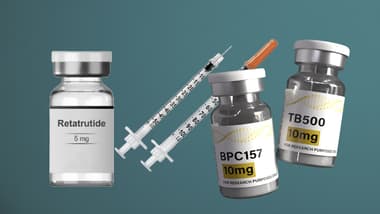Complete Creatine Guide for Kenyans: Benefits, Prices & Where to Buy 2025
Everything you need to know about creatine in Kenya: what it does, whether it's worth the money, and where to find the best deals.
Everything you need to know about creatine in Kenya: what it does, whether it's worth the money, and where to find the best deals.

Creatine is probably the first supplement most Kenyans hear about when they start taking exercise seriously. Yet many still don't fully understand what it does, whether it's worth the money, or where to buy it without overpaying.
First things first: no, creatine is not a steroid, and it won't make you "unnatural." It's the most researched supplement in sports science, with over 500 studies supporting its effectiveness. But for most of us, the real question isn't whether it works. Instead, it's whether it's worth the money when you're already paying at least KSh 3,500 in gym fees and budgeting for high-protein food every month.
Your muscles use a compound called ATP for energy, especially during explosive movements like lifting weights, sprinting, or jumping. The problem is your body only stores enough ATP for about 2-5 seconds of high-intensity work. After that, you start to fatigue.
Creatine helps your muscles regenerate ATP faster, essentially giving you more fuel in the tank. This translates to being able to do more reps at the same weight, lift heavier loads, or maintain power output longer during sets. Research consistently shows that creatine supplementation leads to increases in maximal strength, power production, sprint performance, and lean body mass.
But creatine is not just for gym rats; its benefits extend far beyond the gym. Recent studies indicate it plays important roles in brain function, cellular health, and recovery from injury. Your brain actually uses a lot of energy, and creatine helps maintain that energy supply, potentially improving cognitive performance and protecting against neurological conditions.
For aging populations, creatine can help combat muscle loss (sarcopenia) and maintain bone health. Evidence suggests it may even have therapeutic benefits for various health conditions throughout the lifespan, making it potentially valuable for more than just gym performance.
Here's something supplement companies don't want you to know: creatine monohydrate is creatine monohydrate, regardless of the brand name on the container. The compound is nearly 100% absorbed by your muscles whether it costs KSh 2,000 or KSh 8,000.
Fancy creatine variants like HCL, ethyl ester, buffered, etc are typically just marketing gimmicks with no proven advantages over basic monohydrate. Studies consistently show that creatine monohydrate remains the gold standard, with the most research support and the best track record for safety and effectiveness.
Save your money. Buy the cheapest creatine monohydrate you can find from a reputable source, and spend the difference on actual food or better training equipment.
USN Kenya currently offers the best value for locally available creatine. In fact, their 410-gram container at KSh 3,500 significantly undercuts their smaller 200-gram option at KSh 2,000; you're essentially getting more than double the product for KSh 500 less.
For international brands, HealthyU and similar supplement retailers stock options from Optimum Nutrition, Dymatize, and other global brands. These typically cost more but aren't necessarily better.
Whatever your preferred brand, be cautious about authenticity and check expiration dates. Creatine doesn't go bad quickly, but buying from established retailers reduces the risk of counterfeit products.
Studies show that a loading phase (20 grams daily for 5-7 days) followed by maintenance doses may provide some additional strength benefits, especially for upper body exercises. This means that if you want faster results and don't mind potential stomach discomfort, try 20 grams daily for the first week, then drop to 5 grams. If you prefer a gentler approach, simply start with 5 grams daily; you'll reach the same muscle saturation levels, just over 3-4 weeks instead of one week.
Take it preferably after your workout with some carbohydrates (even just mixing it with fruit juice helps make it more palatable if you dislike the chalky taste). Interestingly, research suggests that taking creatine only on training days can still provide significant benefits for lean tissue mass and strength, though daily supplementation remains the standard recommendation.
Timing isn't that important. Post-workout might be slightly better than pre-workout, but consistency matters more than timing.
Most people notice effects within the first week. You might gain 1-2 kilograms initially, but this is just slight water retention in your muscles (intracellular), not fat. Don't panic; this water retention is actually part of how creatine works and often makes muscles look fuller.
Performance improvements typically show up as being able to complete that final rep you usually miss, maintaining power through longer sets, or recovering more quickly between exercises. The effects are subtle day-to-day but become obvious when you compare your workout capacity after a few weeks of consistent use.
No, you do not lose actual muscle mass when you stop taking creatine. The weight and size reduction (slight) you may experience is primarily due to water loss, not muscle tissue breakdown.
Extensive research, including studies on children and adolescents, shows creatine monohydrate to be remarkably safe for healthy individuals. The most common side effect is mild stomach discomfort if taken on an empty stomach or in large doses.
Some people worry about kidney damage, but these concerns aren't supported by research in healthy individuals. However, if you have existing kidney problems, consult a healthcare provider before starting any supplement regimen.
The water retention some people experience isn't harmful; it's actually beneficial for muscle function and contributes to the performance benefits.
If you're serious about strength training or building muscle, creatine offers more bang for your buck than virtually any other supplement. The research base is solid, the effects are noticeable, and the cost per serving is reasonable.
However, if you're just starting your fitness journey, focus your money on consistent gym access and adequate nutrition first. Creatine enhances training, but it can't replace your effort and sufficient protein intake. But if you're going to spend money on any supplement, creatine monohydrate should probably be first on your list.
Continue reading with these related fitness and health articles




Join the conversation!
Share your thoughts on "Complete Creatine Guide for Kenyans: Benefits, Prices & Where to Buy 2025" below.